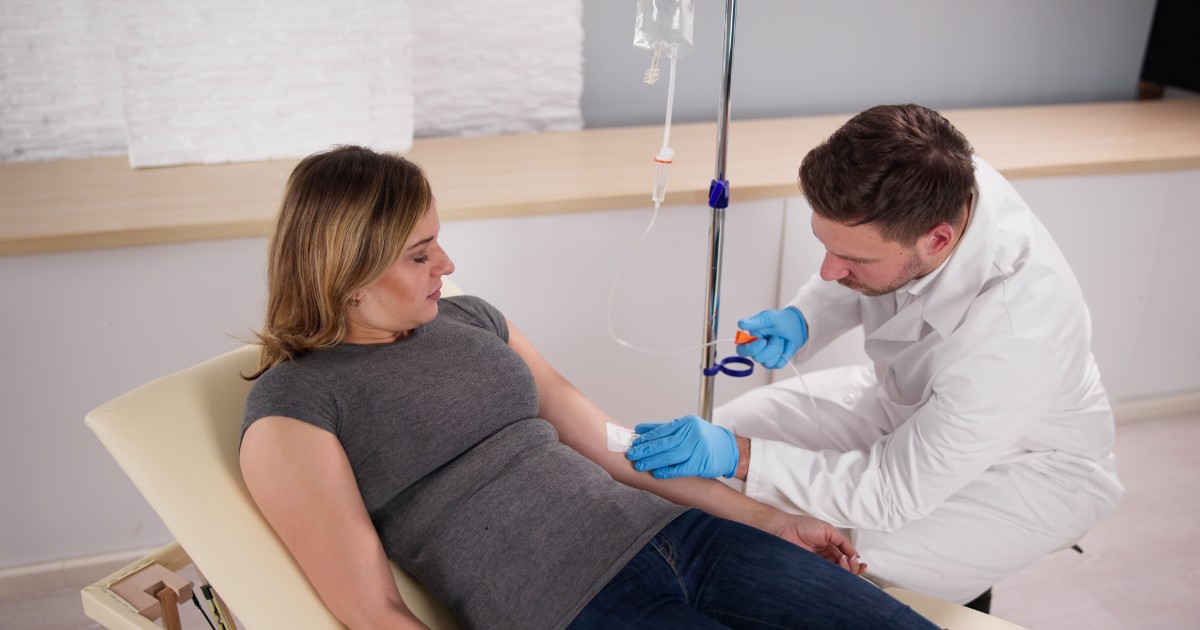If you or a loved one is suffering from a mental health condition such as depression, anxiety, or post-traumatic stress disorder, you may have heard of ketamine infusion therapy as a potential treatment option. While you may be familiar with the benefits of this innovative treatment, you may not know who is responsible for administering it.
This article will explore the medical professionals involved in ketamine infusion therapy, as well as the training and certification required to administer this treatment.
Understanding Ketamine Infusion Therapy
What Is Ketamine Infusion Therapy?
As mentioned above, ketamine infusion therapy involves the intravenous administration of a low dose of ketamine. Ketamine is a dissociative anesthetic that has been used safely and effectively in medical settings for several decades. It works by blocking certain receptors in the brain that are involved in the regulation of mood and emotions. This can result in a rapid improvement in symptoms of depression, anxiety, and other mental health conditions.
The History Of Ketamine Use In Medicine
Ketamine was first synthesized in 1962 and was soon after introduced as a medical anesthetic. In the decades that followed, researchers began to explore the potential uses of ketamine in treating mental health conditions. In the early 2000s, studies began to emerge showing the efficacy of ketamine in treating depression and other mood disorders.
Since then, ketamine infusion therapy has become an increasingly popular treatment option for individuals suffering from mental health conditions.
Conditions Treated With Ketamine Infusion Therapy
Ketamine infusion therapy has been shown to be an effective treatment for a range of mental health conditions, including depression, anxiety, post-traumatic stress disorder, and obsessive-compulsive disorder. It has also been used to treat chronic pain syndromes and certain neurological disorders.
Depression is a common mental health condition that affects millions of people worldwide. It is
characterized by feelings of sadness, hopelessness, and a lack of interest in activities that were once enjoyable. Depression can be caused by a variety of factors, including genetics, environment, and life events.
Traditional antidepressant medications, such as selective serotonin reuptake inhibitors (SSRIs), can take several weeks to start working. This can be frustrating for individuals who are struggling with depression and are looking for relief. Ketamine infusion therapy, on the other hand, can produce rapid improvements in mood and overall quality of life in as little as a few hours.
Anxiety is another common mental health condition that affects millions of people worldwide. It is characterized by feelings of fear, worry, and apprehension. Anxiety can be caused by a variety of factors, including genetics, environment, and life events.
Traditional anti-anxiety medications, such as benzodiazepines, can be effective but can also be addictive and have other negative side effects. Ketamine infusion therapy, on the other hand, has been shown to be an effective treatment for anxiety without the risk of addiction or other negative side effects.
Post-traumatic stress disorder (PTSD) is a mental health condition that can develop after experiencing or witnessing a traumatic event. It is characterized by symptoms such as flashbacks, nightmares, and avoidance of triggers that remind the individual of the traumatic event.
Traditional treatments for PTSD, such as psychotherapy and medication, can be effective but can also take several weeks or months to produce results. Ketamine infusion therapy has been shown to produce rapid and significant improvements in symptoms of PTSD, making it a promising treatment option for individuals suffering from this condition.
Obsessive-compulsive disorder (OCD) is a mental health condition that is characterized by obsessive thoughts and compulsive behaviors. These thoughts and behaviors can interfere with daily life and can cause significant distress.
Traditional treatments for OCD, such as cognitive-behavioral therapy and medication, can be effective but can also take several weeks or months to produce results. Ketamine infusion therapy has been shown to be an effective treatment for OCD, producing rapid improvements in symptoms and overall quality of life.
In addition to mental health conditions, ketamine infusion therapy has also been used to treat chronic pain syndromes, such as fibromyalgia and complex regional pain syndrome. It has also been used to treat certain neurological disorders, such as migraines and neuropathic pain.
Medical Professionals Involved In Ketamine Infusion Therapy
Anesthesiologists
Anesthesiologists are medical doctors who specialize in administering anesthesia during surgical procedures. They are responsible for monitoring the patient’s vital signs and ensuring their safety during the ketamine infusion.
Psychiatrists
Psychiatrists are medical doctors who specialize in the diagnosis and treatment of mental health conditions. They are responsible for evaluating the patient’s mental health history and determining whether ketamine infusion therapy is an appropriate treatment option.
Nurse Practitioners & Physician Assistants
Nurse practitioners and physician assistants may also be involved in the administration of ketamine infusion therapy. They typically work under the supervision of an anesthesiologist or psychiatrist and help monitor the patient during the infusion.
Registered Nurses
Registered nurses are responsible for administering the ketamine infusion and monitoring the patient’s vital signs throughout the treatment. They also provide education and support to the patient and their family during the treatment process.
The Ketamine Infusion Therapy Process
Patient Assessment & Screening
The first step in the ketamine infusion therapy process is a comprehensive patient assessment and screening. This involves a detailed evaluation of the patient’s medical and mental health history, as well as a physical examination to ensure that they are healthy enough to undergo the treatment.
Preparing For The Infusion
Prior to the infusion, the patient will receive detailed instructions on how to prepare for the treatment. This may include restrictions on food and drink, as well as other medications that should be avoided.
Monitoring During The Infusion
During the infusion, the patient will be closely monitored by the medical team to ensure their safety and comfort. This includes continuous monitoring of vital signs such as blood pressure, heart rate, and oxygen saturation levels.
Post-Infusion Care & Follow-Up
After the infusion, the patient will be monitored for a period of time to ensure that they are stable and that the treatment was effective. Follow-up appointments may also be scheduled to monitor the patient’s ongoing progress and adjust the treatment plan if necessary.
Conclusion
Ketamine infusion therapy is a promising treatment option for individuals suffering from depression, anxiety, PTSD, and other mental health conditions. It is crucial to work with a team of medical professionals with specialized training and certification in the administration of this treatment to ensure its safety and effectiveness.
With the right medical team and a comprehensive treatment plan, ketamine infusion therapy can provide rapid and long-lasting relief for individuals struggling with mental health conditions.
Don’t let mental health conditions hold you back any longer. Take the first step towards healing and reach out to Luma Health today. Our experienced medical professionals will conduct a thorough assessment and create a personalized treatment plan to address your specific needs.
With our expertise and dedication to your well-being, we can help you regain control of your life. Schedule a consultation with Luma Health to explore the possibilities of ketamine infusion therapy and start your journey towards mental health recovery. Reach out to Dr. Troy Kurz or Meghan Mccann to get started on treatment.





